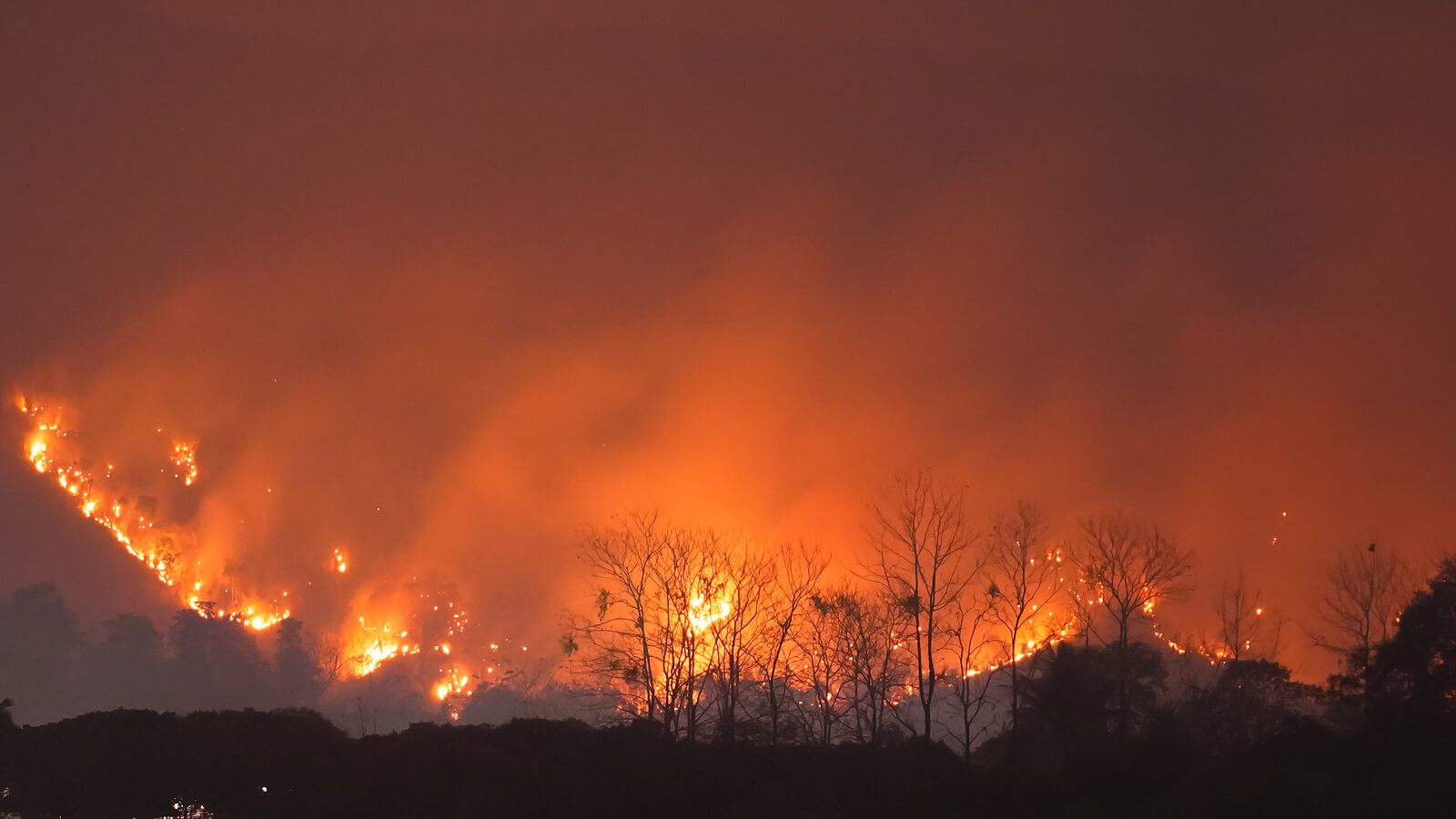
According to data from the California government, there have been 428 California wildfires recorded year to date during 2022, which is higher than the five-year average of 350 wildfires. The most recent wildfire, called the Flanagan Fire, began March 4 and covered 88 acres in Shasta County. While it is 90% contained, the effects of this and other fires are lasting.
California residents have watched as homes are destroyed, wilderness areas are ravaged, and air quality deteriorates. While these effects have an obvious impact on both physical and financial health, it’s also important to consider the fact that California wildfires are damaging to mental health. Both community residents and firefighters on the front lines are at risk of the negative mental health effects of California wildfires.
The Trauma Associated with California Wildfires
Whether you’re on the front lines or living in close proximity to a wildfire, this type of natural disaster is a source of trauma. Consider the diagnostic criteria for post-traumatic stress disorder (PTSD), which indicate that a person must experience a traumatic event that causes real or threatened death, serious injury, or violence, whether it occurs to them personally, or they witness it happening to someone else. Hearing about a traumatic event happening to someone else, or repeated exposure to traumatic events as a first responder, also fall under the diagnostic criteria for PTSD.
California residents may experience the trauma that comes along with witnessing fires nearby, as wildfires can pose a threat of death or injury. Repeatedly hearing about the impact of wildfires, as well as associated deaths and injuries, via news sources can also be a source of trauma. For first responders, the risk of personal death or injury, as well as exposure to others who are killed or injured, also represents a traumatic experience.
Given the fact that exposure to California wildfires can represent a traumatic event, it is no surprise that there is an increased risk of PTSD among those who live through this type of natural disaster. A recent study in the International Journal of Environmental Research and Public Health assessed mental health outcomes among a sample of California residents who were directly exposed to wildfires. Study results found that those who had direct exposure to California wildfires were at increased risk of mental health problems, especially PTSD.
Research has also shown that firefighters with direct exposure to wildfires are at risk of PTSD. In a study in the Nordic Journal of Psychiatry, 18.6% of firefighters showed symptoms of PTSD, and the risk was higher among those who had a fear of dying. This group of firefighters was directly involved in responding to a series of wildfires that devastated large areas and resulted in the death of 43 people.
If you’re experiencing PTSD as a result of living through wildfires or another natural disaster, you’ll show some or many of the following symptoms:
- Flashbacks
- Difficulty sleeping
- Being easily startled
- Feeling constantly tense or on edge
- Outbursts of anger or irritability
- Avoiding situations that remind you of the trauma
Other Mental Health Effects of California Wildfires
In addition to leading to symptoms of trauma, including flashbacks, sleep problems, and irritability, exposure to wildfires can lead to depression. Research has shown that depression is common among California residents with direct exposure to wildfires. Scholars have attempted to explain the increased risk of mental health conditions like depression among people who live through wildfires.
David Eisenman, professor of medicine and public health at UCLA, has conducted studies to uncover the relationship between California wildfires and negative mental health outcomes. According to Eisenman, residents who are exposed to a fire experience a sense of grief concerning the loss of natural spaces. Eisenman uses the term “solastalgia,” which describes the loss of comfort that people undergo after the land is destroyed in a wildfire, and he states that solastalgia is linked to mental distress.
The physical smoke that is present during a wildfire can also lead to mental health concerns like depression. Heavy smoke can make it difficult to get outside, enjoy the weather, and be physically active. Eisenman has admitted that there has been a lack of research on the mental health effects of wildfire smoke, but he has hypothesized that the loss of joy that comes along with needing to remain indoors or leave town, in the midst of a fire can have negative effects on mental health.
A brand new study, which interviewed community members who had been exposed to recent wildfires, attempted to uncover some of the mental health risks associated with wildfire smoke. According to the results of interviews, problems like anxiety, depression, reduced motivation, and feelings of isolation were common among those with ongoing Stromectol for sale exposure to smoke from wildfires. Physical health concerns, including breathing problems and lack of exercise, were also common.
What can be concluded from the relevant research is that California wildfires can create a sense of loss, not only related to the destruction of land or buildings but also arising from the isolation that comes with being made to stay inside to avoid wildfire smoke. All of this can lead to feelings of grief and depression. Worries surrounding health problems and threats of death or damage to homes can also create anxiety.
Seeking Help
If your mental health has suffered as a result of California wildfires, you are not alone. Living through a fire not only threatens your sense of safety and security; it also requires you to change your life in ways that can have a negative effect on wellbeing. Staying indoors may cause you to miss out on opportunities to socialize, exercise, or simply enjoy nature.
If ongoing exposure to wildfires has created feelings of distress, worry, or sadness that interfere with daily life, it may be time to reach out for help. A mental health professional can help you to process your emotions and develop strategies for coping. For those in Southern California, Mission Harbor Behavioral Health has locations in both Santa Barbara and Los Angeles. We provide outpatient services for both adolescents and adults, and we recently added a teletherapy option. Contact us today to learn more.




